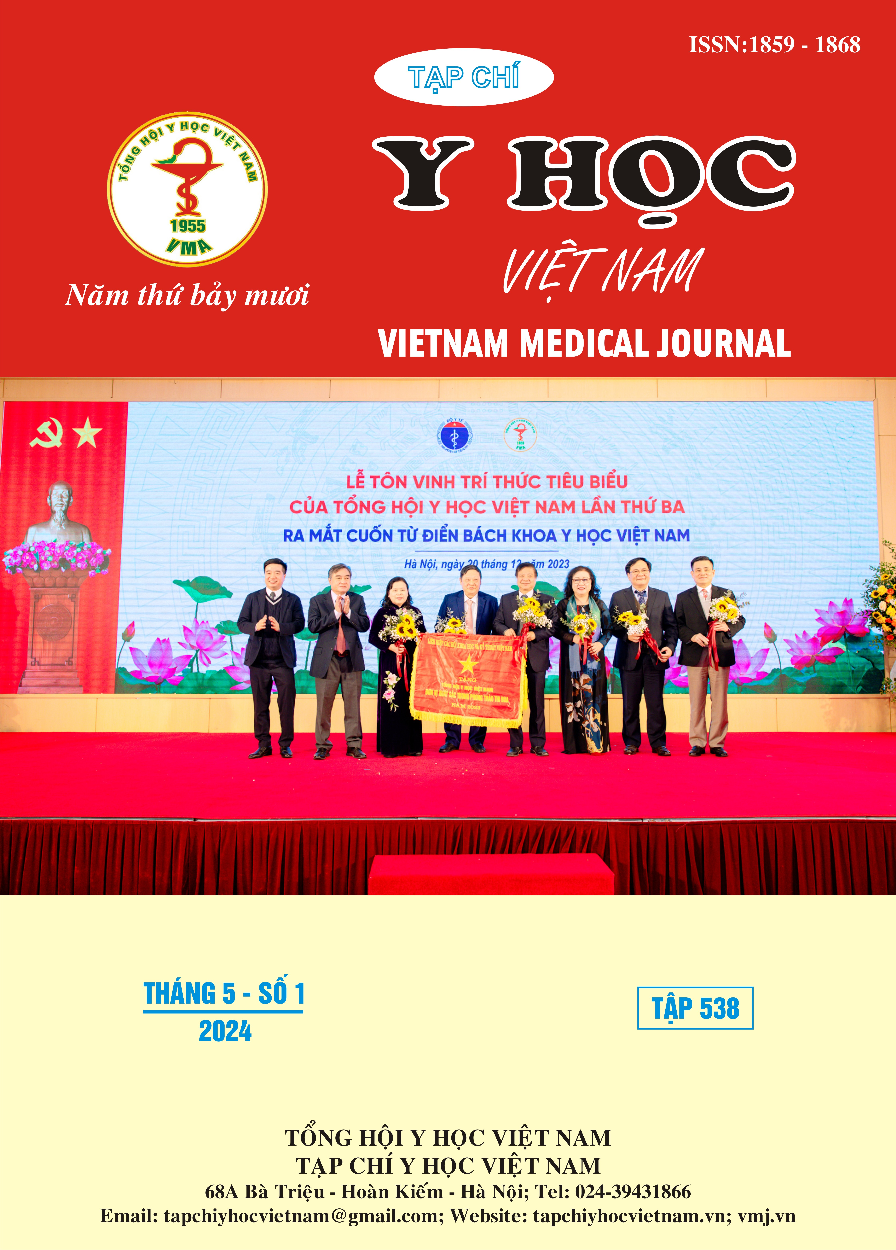ASSOCIATION BETWEEN AZF DELETION MUTATION AND SEMEN PARAMETERS IN OLIGOZOOSPERMIC MEN AT HANOI MEDICAL UNIVERSITY HOSPITAL
Main Article Content
Abstract
Objective: Evaluating the prevalence of AZF deletion mutations and the relationship between AZF deletion mutations with semen parameters and other factors in oligospermic men. Material and methods: Retrospective, cross-sectional study conducted on 243 oligospermic men who were tested with Multiplex PCR to determine AZF mutations at Hanoi Medical University Hospital. Results: AZF deletion mutation has 47 cases (19.3%), of which 5/47 cases (10.6%) have AZFb deletion mutation, 27/47 cases (57.5%) of AZFc deletion mutations and 15/47 (31.9%) cases with combined AZFb and AZFc deletion mutations. No AZFa mutation was detected. The average values of the parameters of semen characteristics and male sex hormones between the AZF mutation and non-mutation groups were not statistically different (p > 0.05). Conclusion: There is no difference in semen parameters and male sex hormones between men with and without AZF deletion mutation.
Article Details
Keywords
AZF, semen analysis, oligospermia
References
2. Elsaid H.O.A., Gadkareim T., Abobakr T., et al. (2021). Detection of AZF microdeletions and reproductive hormonal profile analysis of infertile sudanese men pursuing assisted reproductive approaches. BMC Urol, 21(1), 69.
3. Colaco S. and Modi D. (2018). Genetics of the human Y chromosome and its association with male infertility. Reprod Biol Endocrinol, 16(1), 14.
4. Giang P.T., Nhung N.T.T., Cường T.D., et al. (2021). Xác định tỷ lệ mất đoạn AZF ở bệnh nhân nam vô tinh hoặc thiểu tinh tại Bệnh viện Phụ sản Trung ương bằng phương pháp QF – PCR. 1, 19(4), 58–62.
5. Anh L.T.L. and Lan H.T. Ứng dụng kỹ thuật Real-time PCR phát hiện mất đoạn AZF ở bệnh nhân vô sinh nam không có tinh trùng. .
6. Vutyavanich T., Piromlertamorn W., Sirirungsi W., et al. (2007). Frequency of Y chromosome microdeletions and chromosomal abnormalities in infertile Thai men with oligozoospermia and azoospermia. Asian J Andrology, 9(1), 68–75.
7. Liu X.-Y., Wang R.-X., Fu Y., et al. (2017). Outcomes of intracytoplasmic sperm injection in oligozoospermic men with Y chromosome AZFb or AZFc microdeletions. Andrologia, 49(1).
8. Visser L., Westerveld G.H., Korver C.M., et al. (2009). Y chromosome gr/gr deletions are a risk factor for low semen quality. Human Reproduction, 24(10), 2667–2673.
9. Zhu Y., Wu T., Li G., et al. (2015). The sperm quality and clinical outcomes were not affected by sY152 deletion in Y chromosome for oligozoospermia or azoospermia men after ICSI treatment. Gene, 573(2), 233–238.
10. Tomasi P.A., Oates R., Brown L., et al. (2003). The pituitary-testicular axis in Klinefelter’s syndrome and in oligo-azoospermic patients with and without deletions of the Y chromosome long arm. Clin Endocrinol (Oxf), 59(2), 214–222.


